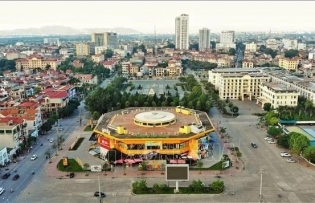
Bac Giang aims to create breakthroughs in science-technology, innovation, digital transformation
19:05 | 23/03/2025 12:54 | 16/02/2025Science - Technology
Nestled in the mid-mountain area of Yen The District, Bac Giang Province, there is a smoke-filled kitchen where fire glows day and night. From what once seemed a place reserved only for memories, Hoang Xuan Mau, a young man of the Cao Lan ethnic group, has ignited a unique entrepreneurial journey, turning his hometown dishes into certified OCOP (One Commune One Product) items, bringing their flavors beyond the village bamboo hedges.
Recently, Vietnam Economic News had a chance to interview Mau, to get a glimpse into his broader effort to build brands for products of ethnic minorities with integrity, perseverance, and a deep belief in the enduring cultural value.
-What inspired you to return to your hometown and start a business based on the traditional cuisine of the Cao Lan people?
I was born into a Cao Lan family in Ban Nghe Hamlet, Xuan Luong Commune, a mountainous area where life is tough but rich in community and cultural heritage. I grew up surrounded by the scent of charcoal stoves, where my mother would hang strips of smoked pork. Later, during my studies, I realized that this culinary culture was more than just a memory, it could become an economic asset if developed thoughtfully and respectfully.
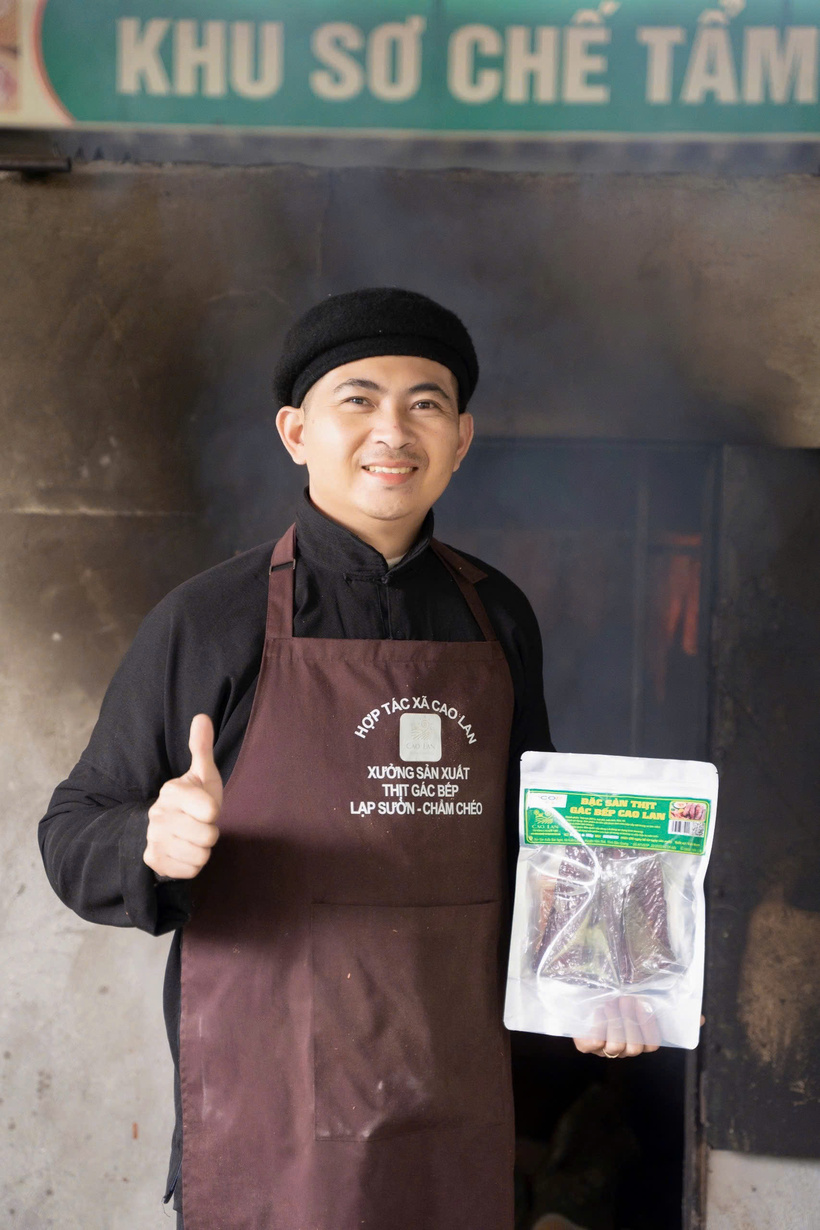
Hoang Xuan Mau, a young man of the Cao Lan ethnic group, has ignited a unique entrepreneurial journey, turning his hometown dishes into certified OCOP (One Commune One Product) items, bringing their flavors beyond the village bamboo hedges.
In 2022, I founded a cooperative with eight members, most of whom are locals. Our first product was Cao Lan smoked pork, followed by smoked sausage, all handmade according to ancestral methods, from selecting free-range black pigs to seasoning with native ingredients like mac khen pepper, doi seeds, and mac mat leaves.
What brings me the most joy is when visitors come to taste the food and say it reminds them of “the smell of memory.” That’s when I feel our products have become true cultural brands.
-As a young business in an ethnic minority region, what has your cooperative done to build and position your OCOP brand in today’s competitive market?
Hoang Xuan Mau: To be honest, the early days were extremely challenging. Producing the goods was easy, convincing people to trust the quality was much harder. Highland products are often seen as homemade specialties, lacking in standards and proper packaging. I realized that if we wanted to go far, we needed to professionalize everything from the ground up.
We began by joining the One Commune, One Product (OCOP) program. This was the first gateway for our products to approach the market in a formal way. In 2022, our smoked pork was awarded the provincial 3-star OCOP certification. In 2025, our smoked sausage also earned its stars. These certifications not only recognized our efforts but also served as a kind of “passport,” giving our products easier access to distribution channels like supermarkets, highland markets, trade fairs, and even online sales platforms.
We invested in a 200-square-meter processing and smoking facility that meets food safety and hygiene standards. Our packaging was designed to reflect the cultural identity of the Cao Lan ethnic group, featuring QR codes and labels for traceability and consumer confidence. We also learned how to tell our story, not just to sell a product, but to share the cultural identity of our ethnic community.
Most importantly, the Bac Giang Provincial Farmers’ Union has supported us from OCOP documentation and technical training to communications and market promotion. With this kind of institutional support, young people like me dare to dream bigger. Building a brand is never a solo journey, especially for businesses in remote, ethnic communities.
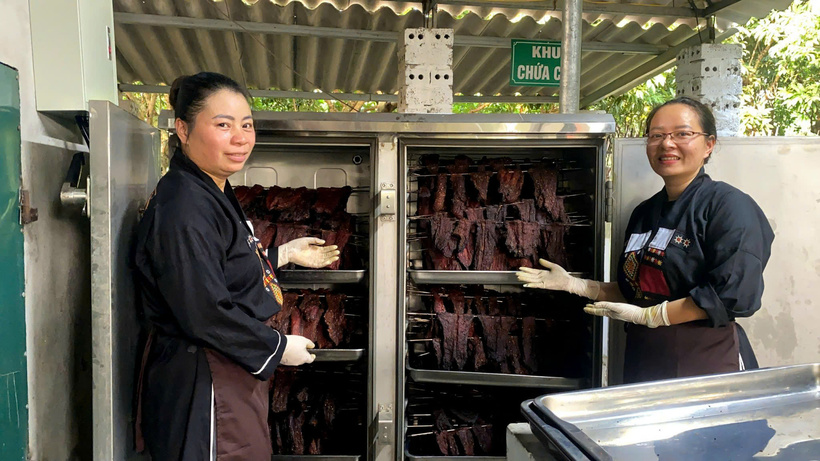
The Bac Giang Provincial Farmers’ Union has supported us from OCOP documentation and technical training to communications and market promotion.
From your journey, what do you think is the key to helping ethnic minority products reach wider and more sustainable markets?
Hoang Xuan Mau: I believe that to build a successful brand, one must first have sincerity, then vision and strategy. Many producers of traditional goods chase the market and forget their cultural roots. That may be a shortcut, but not a sustainable path.
At Cao Lan Cooperative, we chose a different route: preserve cultural authenticity while upgrading product standards to modern expectations. I believe that when a product is tied to identity and community stories, it can create real emotional connection and stand out in a crowded market. Amid a sea of industrial foods, artisanal, culturally rich products, if done properly, are rare treasures.
I’ve also learned that the market doesn’t “pity” highland products but demands trust. To earn that trust, we must standardize everything, from quality to customer service, from storytelling to user experience. We currently welcome nearly 200 visitors a month, not just buyers, but people who want to learn about Cao Lan food culture and how we produce our goods. We want our products not just to be in gift baskets, but in people’s memories.
I hope government agencies will continue to support small ethnic businesses, not only with financial assistance but also with strategic branding, communication, and market linkage programs. Only then can ethnic minority entrepreneurs realize their dreams, and each highland specialty product truly soar as a cultural ambassador in this modern era.
With the goal of expanding market access for highland products, the Cao Lan Agriculture and Service Cooperative is serving as a key link in promoting the consumption of specialty goods produced by ethnic minority communities. More than just a production facility, the cooperative is also actively involved in market promotion, brand development, and value chain building, gradually opening up new sales channels for local products.
One of the most notable achievements is the transformation of traditional Cao Lan dishes, such as five-colored sticky rice, puffed rice cakes, and smoked pork, into certified OCOP commodities. Through professional processing, attractive packaging, and promotion via modern sales platforms, these dishes, once known only as traditional offerings during festivals, are now available at trade fairs, supermarkets, and OCOP showcases across provinces, significantly enhancing the value of local agricultural products.
Going further, the cooperative has expanded production, creating stable jobs for local residents, particularly ethnic minority women. Agricultural supply chains, from raw material zones to end consumers, are gradually being developed, helping highland products retain their cultural identity while keeping pace with modern market demands. As a result, producers are no longer just “selling what they have,” but learning to “make what the market needs.”
The Cao Lan Agriculture and Service Cooperative is a vivid example of how collective economic models can connect producers to the market, enhance product value, and drive sustainable development for goods made by ethnic minority and highland communities.
The story of Hoang Xuan Mau and the Cao Lan Cooperative is not just about entrepreneurship. It’s about safeguarding cultural identity in an era of globalization. Amid the waves of marketization, modernization, and standardization, young people like him are choosing a path rooted in heritage, perseverance, and purpose. Their efforts serve as inspiration for thousands of OCOP development models across ethnic minority communities in Vietnam.
The early success of Cao Lan Cooperative also highlights the vital role of the OCOP program and the support from organizations such as the Bac Giang Provincial Farmers’ Union, which have provided assistance not only in legal documentation and production techniques, but also in market strategy, traceability, and trade promotion. In a time when a product’s story has become a key competitive edge, being able to tell a meaningful, authentic, and emotionally resonant story is priceless.
From slices of smoked meat infused with fire, faith, and ambition, Cao Lan Cooperative is spreading not just flavor, but an entire culture. They are not building a brand just to sell a product. They are building a brand to preserve the soul of their people.

19:05 | 23/03/2025 12:54 | 16/02/2025Science - Technology

19:05 | 23/03/2025 15:08 | 15/02/2025Investment

19:05 | 23/03/2025 10:58 | 09/02/2025Culture
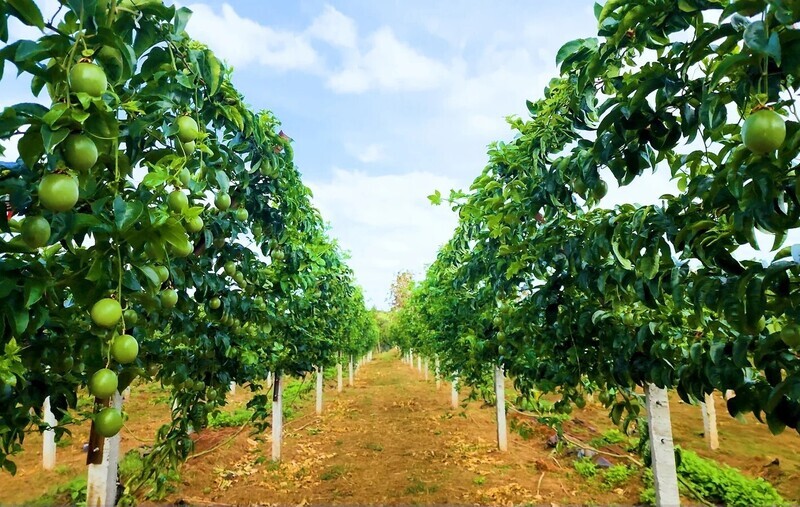
19:05 | 23/03/2025 20:40 | 23/02/2026Trade
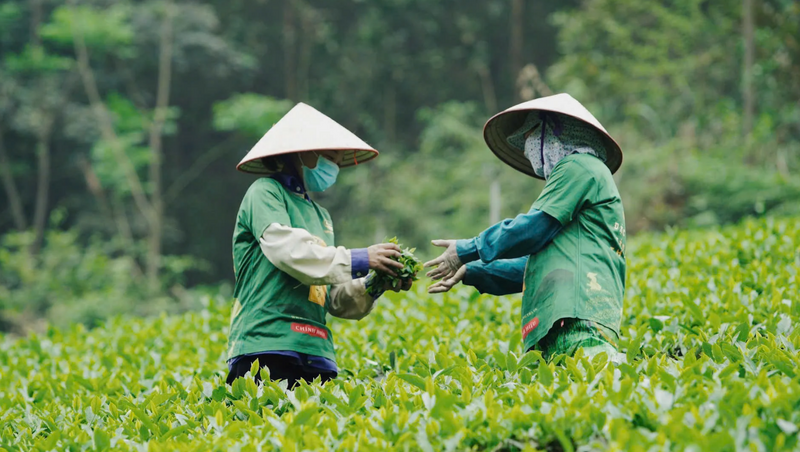
19:05 | 23/03/2025 20:38 | 23/02/2026Trade

19:05 | 23/03/2025 20:30 | 23/02/2026News and Events

19:05 | 23/03/2025 20:29 | 23/02/2026News and Events

19:05 | 23/03/2025 20:14 | 22/02/2026News and Events